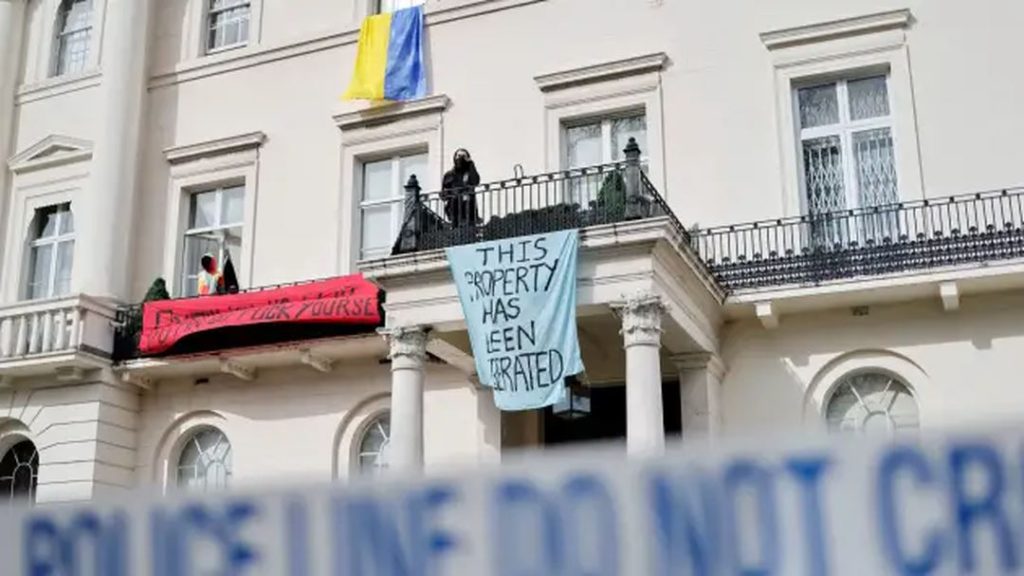The West has difficulty enforcing sanctions to block Russian money from entering the EU. On March 9, conflicting reports regarding the amount of oligarch cash that had been frozen surfaced, and more recently, the EU legal department claimed that it had only been able to locate $37 billion of the $250 billion in the Central Bank of Russia (CBR) reserves that were allegedly held in EU accounts.
The Russian Elites, Proxies, and Oligarchs (REPO) task group announced on March 9 that the West had frozen more than $58 billion in assets belonging to oligarchs and other Russian nationals in the previous year. Some estimates place the figure significantly lower at $20 billion.
REPO’s objective
The task force was established as a multilateral organization of Western nations to find Russian funds and assets concealed in the West and has the authority to seize any properties connected to Russians subject to sanctions.
Bloomberg reported the same day that after numerous rounds of sanctions, the EU had only frozen €20.9 billion ($22 billion) in assets to date, according to other unnamed EU authorities. And that figure isn’t rising. The EU announced that approximately €17.4 billion had been frozen in October.
According to the most recent figures reviewed by Bloomberg, Belgium and Luxembourg have immobilized billions. Still, other member states have only immobilized amounts that barely exceed six digits, with Greece stating that it has only frozen €212,201 and Malta reporting €222,470.
In February, Credit Suisse, a Swiss bank, announced that it had frozen CHF17.6 billion ($19 billion) in Russian oligarch assets in its accounts. Despite Switzerland’s exclusion from the EU, this amount is thought to represent about one-third of all Russian assets recorded there (CHF46.1 billion, or almost $50 billion).
According to experts, private wealth in Europe is orders of magnitude greater and is primarily untapped. London’s top five oligarchs’ properties alone are valued at over $1 billion. According to Bloomberg, Russia’s overall stock of FDI in the EU is thought to be around €136 billion.
REPO notes more achievements. The task force “has leveraged substantial global coordination to apply unprecedented pressure on sanctioned Russians” since the commencement of Russia’s particular military campaign in Ukraine, REPO said in the statement.
The assets of sanctioned Russians totaling more than $58 billion have been successfully frozen or banned by REPO members, who have severely curtailed their access to the global financial system.
Frozen assets
Among the targets are real estate, yachts, planes, and other assets linked to oligarchs and other people on the Specially Designated Nationals and Blocked Persons (SDN) List.
In addition to freezing assets, REPO reported that the task force had also resulted in the first forfeiture of a Russian who had been sanctioned; nevertheless, the amount was a pitiful $5.4 million donated to Ukraine as foreign aid.
No actual results to date
The almost insignificant number of Russian assets that have been frozen and seized, giving ownership to the EU authorities, emphasizes the logistical challenges of obtaining frozen assets. Assets can readily be frozen under EU legislation but can only be confiscated if the owner has been found guilty of a crime. State-owned property can only be legitimately seized if there is a formal declaration of war between the two nations.
The purported $300 billion in CBR reserves blocked by Western sanctions in the early days of the war have been repeatedly demanded. However, the legal authorities of the EU recently acknowledged that they could not locate most of Russia’s $300 billion in frozen funds. Only slightly more than $37 billion had been found and frozen. For nations to better coordinate their actions, the EU is currently creating a centralized registry of assets from Russia that have been frozen.
The US Treasury and Justice secretaries are among the members of the REPO task force, together with officials from Australia, Canada, France, Germany, Italy, Japan, the UK, and the European Commission.
Photo: A group of squatters displayed banners and a Ukrainian national flag on the facade of a mansion supposedly belonging to Russian oligarch Oleg Deripaska in Belgrave Square, central London, on March 14, 2022 as they occupied it. Oleg Deripaska is one of the seven Russian oligarchs who have been sanctioned by Britain’s Government. Tolga Akmen | AFP | Getty Images

